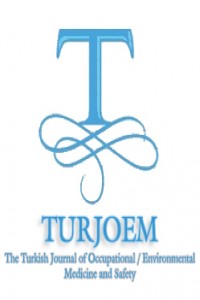Abstract
In recent years,
there is an increase in herbal product consumption, since herbal products are
presented as harmless under the mask of the term "natural". It is
obviously seen in the clinical evaluation of the intoxication cases that the
most plant exposures in children are unintentional and in contrast to that,
adults tend to intake herbal products for self-treatment against chronic illnesses
such as cancer, obesity, thyroid, erectile dysfunction etc. Although most
herbal products may be used without any adverse reaction, some may have serious
toxicities depending to dose, duration, or concomitant pharmaceutical drug
usage. Herbal products may produce
multiple symptoms, and may affect multiple organ systems, including
cardiovascular, renal, hepatic, nervous, gastrointestinal (GI), and hematologic
systems. Additionally, herbal products are including heavy metals such as lead,
mercury, and arsenic along with active substance.
The incidence of
the severe intoxications is higher in elder patients, who have chronic
illnesses, impaired organ functions or multiple drug treatment especially with
a narrow therapeutic margin such as warfarin. In Turkey, there is no
toxicological herbal database recording epidemiologic data in emergency
clinics, except some special case reports. Some exposure cases were encountered
in Cerrahpaşa Emergency service up to the present including Aconitum, Datura
stramonium, Mandragora autumnalis, Ecballium elaterium, Nerium oleander poisoning.
In this presentation, the clinical approach to "real" herbal
intoxication cases, including findings and treatment managements of patients
will be discussed.
References
- Işıl BAVUNOGLU
- Istanbul University, Cerrahpaşa Medical Faculty, Department of Internal Medicine, 34098, Cerrahpasa, Istanbul
Abstract
References
- Işıl BAVUNOGLU
- Istanbul University, Cerrahpaşa Medical Faculty, Department of Internal Medicine, 34098, Cerrahpasa, Istanbul
Details
| Journal Section | Articles |
|---|---|
| Authors | |
| Publication Date | February 16, 2017 |
| Published in Issue | Year 2017 Volume: Volume 2 Issue: İssue 1 (1) - 2.İnternational Congress Of Forensic Toxicology |


